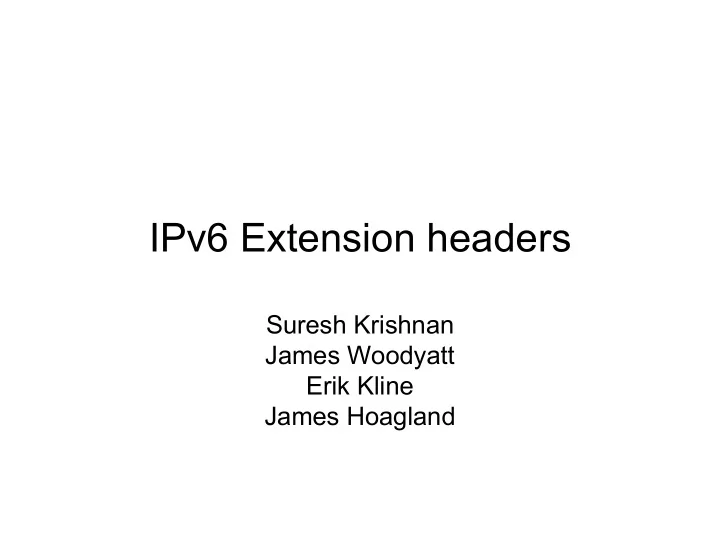

IPv6 Extension headers Suresh Krishnan James Woodyatt Erik Kline James Hoagland
Extension headers • The base IPv6 standard [RFC2460] defines extension headers • An expansion mechanism to carry optional internet layer information. • Extension headers, with the exception of the hop-by-hop options header, are not usually processed on intermediate nodes. • However, some intermediate nodes such as firewalls, may need to look at the transport layer header fields in order to make a decision to allow or deny the packet.
Unknown extension headers • If new extension headers are defined and the intermediate node is not aware of them, the intermediate node cannot proceed further in the header chain since it does not know where the unknown header ends and the next header begins. • The main issue is that the extension header format is not standard and hence it is not possible to skip past the unknown header. • This document defines a standard format for IPv6 extension headers.
Advantages of a standard format • Allows middleboxes to skip over unknown headers – Whether or not this is done is up to the policy settings on the middlebox • Allows generic parsing routines for extension headers
Proposed format • For all new extension headers
Backward Compatibility • All existing extension headers are compatible to this format except the Fragment header – Option 1: Leave fragment header as is, and consider that an exception – Option 2: Redefine the reserved field of the fragment header to the length field • The authentication extension header follows the same format but has a different semantic for the length field (Thanks Jinmei)
Ways forward 1. Adopt this standard format for all future extension headers 2. Recommend against creating new extension headers • Use destination options instead
Thanks Questions?
Recommend
More recommend